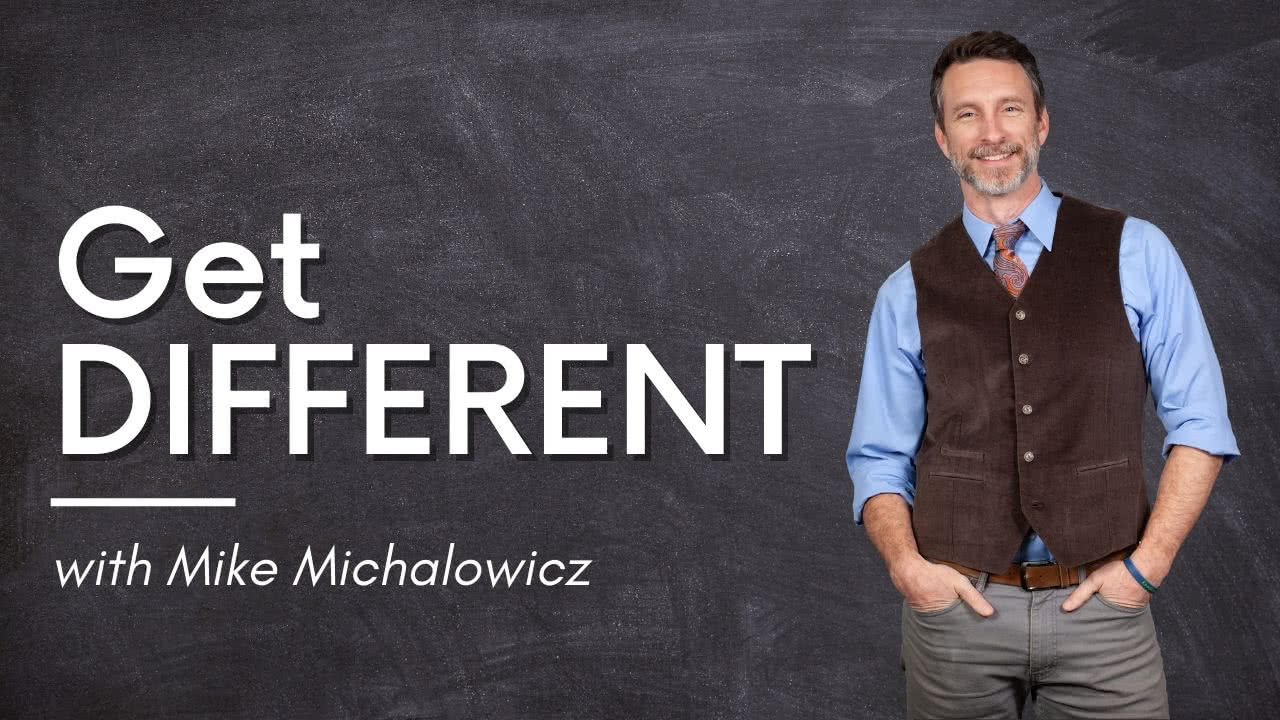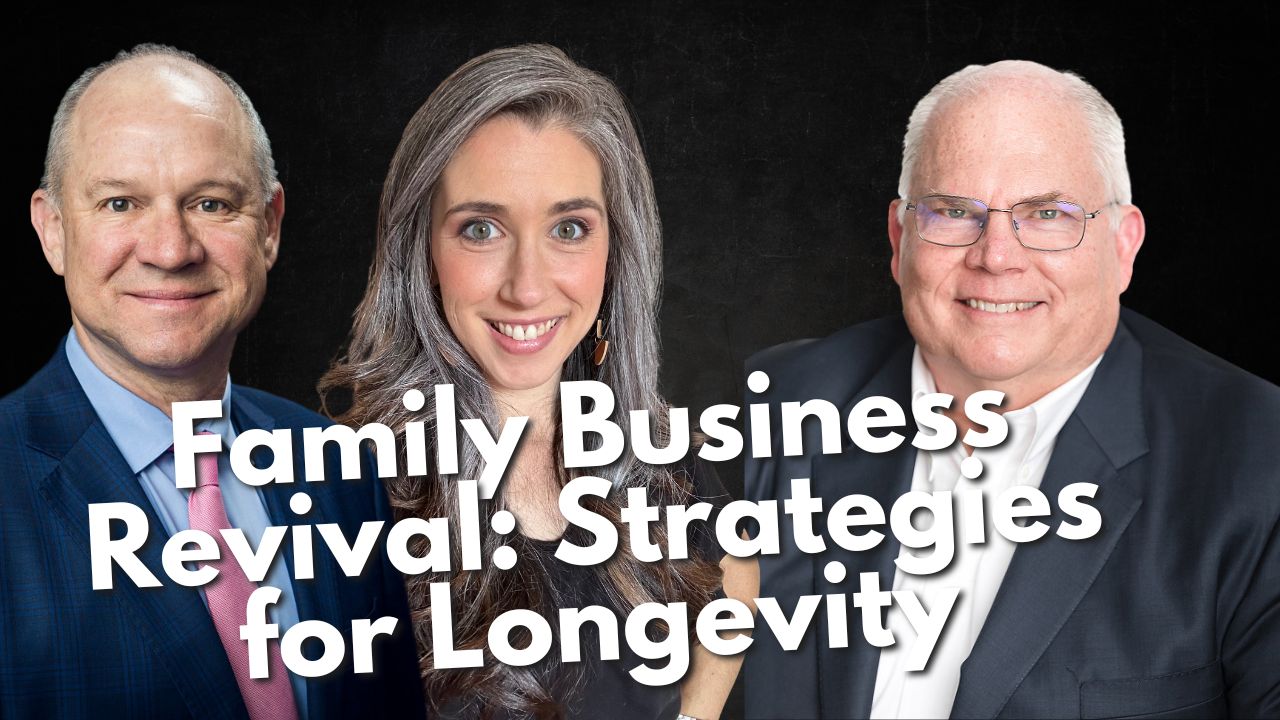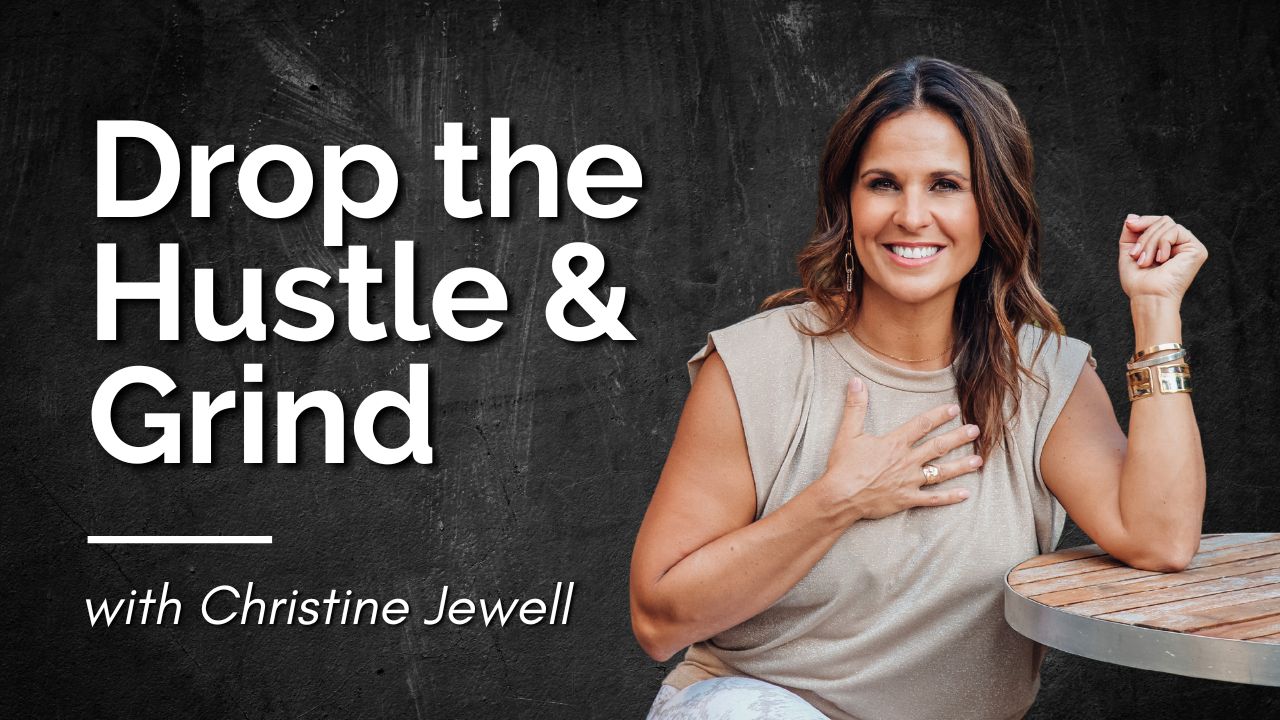
Get Different, with Mike Michalowicz
Want the most effective and radically simple marketing system in existence? Today, we’re talking with Mike Michalowicz, perennial best-selling author of Profit First, Surge, The Pumpkin Plan, FixThis Next, and his newest release Get Different.
If you want to scale your business and reach more people, here’s the answer you’ve been waiting for. Tune in now!
Podcast: Play in new window | Download (Duration: 27:37 — 31.6MB)
Subscribe: Apple Podcasts | Spotify | Android | Pandora | RSS | More
Table of contents
We love having Mike Michalowicz as a guest because he knows and understands entrepreneurs like you! Mike has joined us before to discuss his books Profit First as well as The Pumpkin Plan, and now we’re excited to talk with him about his latest book, Get Different!
This book is all about how to stand out and be different so that you can not only attract clients and customers, but attract the right ones for you. Marketing is like the lifeblood of any business, but it can be all too easy to lose your “edge.” Mike Michalowicz is here to share his ideas so that you can continue to innovate your marketing strategies.
Why Marketing Blends Into the Background
[2:50] “I discovered this concept called habituation, and how it works biologically is we have a thing called the reticular formation. It’s a neural network, both figuratively and literally; it’s a net that sits at the brain stem, and as stimuli come in…its primary job is actually to disregard or ignore most things. It’s the way we maintain focus.”
Without this reticular formation, anything and everything can distract us. Our brain uses this function to manage productivity and focus. Because the daily stimulation from things we experience with our senses is constant. Just imagine all the things you filter out as “normal” in your daily life.
[3:25] “So the job of the reticular formation is to ignore everything unless it meets one of three qualifiers. Threats get prioritized—our safety depends on it, so that’s the number one feature. The second…is opportunity. If there’s a known opportunity, we will pursue it. And there’s a third way through, and it’s the unknown or the unexpected because our mind then needs to open up and say is this something I need to consider as a threat or opportunity? Everything else is ignorable. And this happens on a subconscious level.”
A great example Mike shares is how we filter through junk mail. It’s amazing how quickly people can rifle through their mail and pick out the garbage from the important pieces, with very little information. The only things that make us stop in our tracks are the things that stand out from what we’re used to.
The Problem with Email Marketing
Now, more modern forms of marketing, like email, are facing the same problems. People have become so accustomed to certain practices that they can filter out “junk” in milliseconds. Mike reminisces about the first time he got an email with the subject line, “Hey Friend.” It was novel and created a sense of kinship. Then he opened it and realized it was a marketing message. As this continued to happen, it got easier to filter out emails that started with this as being “junk.”
This is an experience that most people with an email address can relate to. And it’s therefore no longer a very effective way to market through email. The same goes for dozens of email strategies. Yet they’re still commonplace, and marketers still teach these methods to entrepreneurs.
As consumers, we all become habituated to certain marketing messages that our reticular formation has learned to filter out. It’s not a threat or opportunity, so it’s unnecessary knowledge for our brain to spend time on.
[4:43] “Our job when we market our business, is to do something that is different than the norm. That’s the only way to pierce through this because if you are the norm, you are white noise, you are habituated, you’ll be ignored. The last little asterisk I want to put here [is that] I’m not saying you have to be outrageous…No. You simply need to do something that your market isn’t doing to get in front of your customers.”
How to Break Through the Habituation
[5:56] “There are two things. First of all, we have to overcome the biggest impedance to successful marketing for small businesses, which is our own fear. It’s ironic that we want to stand out without standing out. We want to be noticed without being noticeable…And therefore, what we have to realize is this…that we not only have a responsibility to market, but marketing is the ultimate act of kindness. You know, most people feel that marketing is bothersome…but the reality is if what you offer is superior to the alternatives…it’s your responsibility is to market.”
The reason Mike offers is that if you don’t market, and someone receives an inferior product because they don’t see their options, that’s on you. But putting your content and your offerings out into the world gives people the ability to make an educated decision, and can help them choose the best possible service or product.
[8:00] “Here’s a lesson: whatever the best practices are for marketing in your industry, is probably the white noise, so don’t do that. I am a fan of best practices in all elements of business… but when it comes to marketing, it’s actually the best practices from other industries, that our industry isn’t doing, that we want to take in.”
Using the DAD Method
From this lesson, Mike Michalowicz offers the second step to break away from habituation. And that’s what he calls the DAD method. The first D stands for differentiate, and once you’ve done that, you have about ten seconds to make or break it with a prospect, because their brain is subconsciously working to categorize you as either a threat or an opportunity. This phase is Attract, where you present yourself as an opportunity.
[8:58] “Basically, whatever this prospect is, they have to feel that it is of service to them to stay engaged in this marketing piece, whatever it may be.”
Then, the final stage is Direct. Mike defines this as the stage where you give the client “specific and explicit direction.” This is one action that you ask them to do—no more, no less.
[9:18] “Our goal in marketing is to move them to the final transaction, the sale…So you have to have a specific direction for them to take that moves them closer to the transaction, but you want to do it as efficiently as possible. So there’s a balance here. Make sure they feel safe every step of the way, while also moving them toward the ultimate transaction and not waffling around.”
How to “Get Different”
[10:45] “So when you look at your prospects, the first question you ask yourself is how are they currently being approached? Then we need to either break the medium or the method.”
As an author, Mike recognizes that it’s common in his industry to send out email blasts to market book launches and events. At a certain point, though, the recipients of these emails filter them out subconsciously, because it’s a lot to take in. In this instance, the opportunity is to break the medium, which is sending an announcement via email. The new medium could be a billboard, or a radio show—it’s not outrageous, but it’s not what everyone else is doing either, so it commands attention.
In short, think about what your prospects is seeing in their day to day, and do something different.
On the other hand, you can look to break the method. Say you still want to email. Now, look at what those in the industry are doing, and make changes there. For example, Mike shares that he recently sent an “invisible ink” email. He made the text white, over a white background, and wrote directions to click and drag the mouse to highlight the text. The open rate for this email was higher than ever before.
[12:45] “Don’t do what the industry is doing, that’s the big lesson.”
Overcoming the Fear of Being Different
Most entrepreneurs ultimately struggle with fear: they see a new or innovative idea, and they’re afraid to replicate it because it seems farfetched or out of the box. And yet other people have done it with success.
[17:23] “When you’re doing different, you’ve got to milk that cow for all it’s worth. And at a certain point, people replicate it. But they replicate generally slowly…There’s still that fear trigger…Usually people adopt things only when the early adopters are fully adopted into it. So different has a runway…of months or even years, before it becomes habituated because it’s been saturated.
Successfully “Get Different”
Mike shares that the way to find ideas with potential success is through experimentation.
[21:30] “Traditional marketing teachings say have a plan. I found, actually, that’s a mistake. The marketing plan says here’s what I’m committing to, and if it’s failing to work, often the response is that you’re not doing enough of it…Which simply means roll out more bucks.”
Instead, to experiment means to try things that will either work or not work. And if it doesn’t work, you try something new. It’s not about whether you’ve shelled out enough money. Instead, it targets the heart of the problem, which is: are people responding to your methods?
[22:48] “Experiment frequently, do it as inexpensively as possible, amplify what works. That’s how you’re going to find what works. How to keep it going? Well, it’s rooted in kindness…It’s having that motivation to realize you’re being of service. And some people are so afraid of trying out new marketing, you can actually use random acts of kindness to get started.”
By this, Mike shares that he literally means doing random acts of kindness to kick-start a habit of experimentation. You can start by bringing your neighbor’s mail to the door, writing a kind note, or filling someone’s parking meter. It doesn’t have to be a huge gesture, and you shouldn’t even care whether or not you get recognized for it. You won’t get accolades, but you’ll feel more energized by being of service, which can help kick-start that feeling when you’re marketing.
Get Different with Mike Michalowicz
- Go Get Different
- +1 (973) 975-4763
- Obsidian Launch, Profit First Professionals
About Mike Michalowicz
Confident that he had the formula to success, he became a small business angel investor… and proceeded to lose his entire fortune. Then he started all over again, driven to find better ways to grow healthy, strong companies. Mike has devoted his life to the research and delivery of innovative, impactful entrepreneurial strategies to you.
Mike is the creator of Profit First, which is used by hundreds of thousands of companies across the globe to drive profit. He is the creator of Clockwork, a powerful method to make any business run on automatic. In his 2020 release Fix This Next, Mike details the strategy businesses can use to determine what to do, in what order, to ensure healthy, fast, permanent growth (and avoid debilitating distractions). His latest book Get Different (released September 21, 2021) will give you the tools to stand out in any market.
Today, Mike leads two new multi-million-dollar ventures, as he tests his latest business research for his books. He is a former small business columnist for The Wall Street Journal and business makeover specialist on MSNBC. Mike is a popular main stage keynote speaker on innovative entrepreneurial topics; and is the author of Get Different, Fix This Next, Clockwork, Profit First, Surge, The Pumpkin Plan and The Toilet Paper Entrepreneur.
Fabled author Simon Sinek deemed Mike Michalowicz “… the top contender for the patron saint of entrepreneurs.”
Book A Strategy Call
Do you want to coordinate your finances so that everything works together to improve your life today, accelerate time and money freedom, and leave the greatest legacy? We can help!
Book an Introductory Call with our team today https://themoneyadvantage.com/calendar/, and find out how Privatized Banking, alternative investments, or cash flow strategies can help you accomplish your goals better and faster.That being said, if you want to find out more about how Privatized Banking gives you the most safety, liquidity, and growth… plus boosts your investment returns, and guarantees a legacy, go to https://privatizedbankingsecrets.com/freeguide to learn more.
Family Business Longevity, with Rob Ferguson
Family businesses have a shrinking lifespan. Families in business together face conflicts and challenges that have made it increasingly difficult to build a business that lasts generations. Yet Rob Ferguson, founder of Ferguson Alliance, says that family businesses can live to infinity with the right systems and tools. Today, we’re discussing how the key components…
Read MoreStop the Hustle and Grind, with Christine Jewell
Are you an ultra-high achiever, but feeling the cost of that success? Christine Jewell, author, keynote speaker, faith-based executive coach, and host of the Breaking Chains podcast, joins us today to provide a fresh solution. In her new book, Drop the Armor, Christine teaches you a transformational approach that allows you to stop the hustle…
Read More


